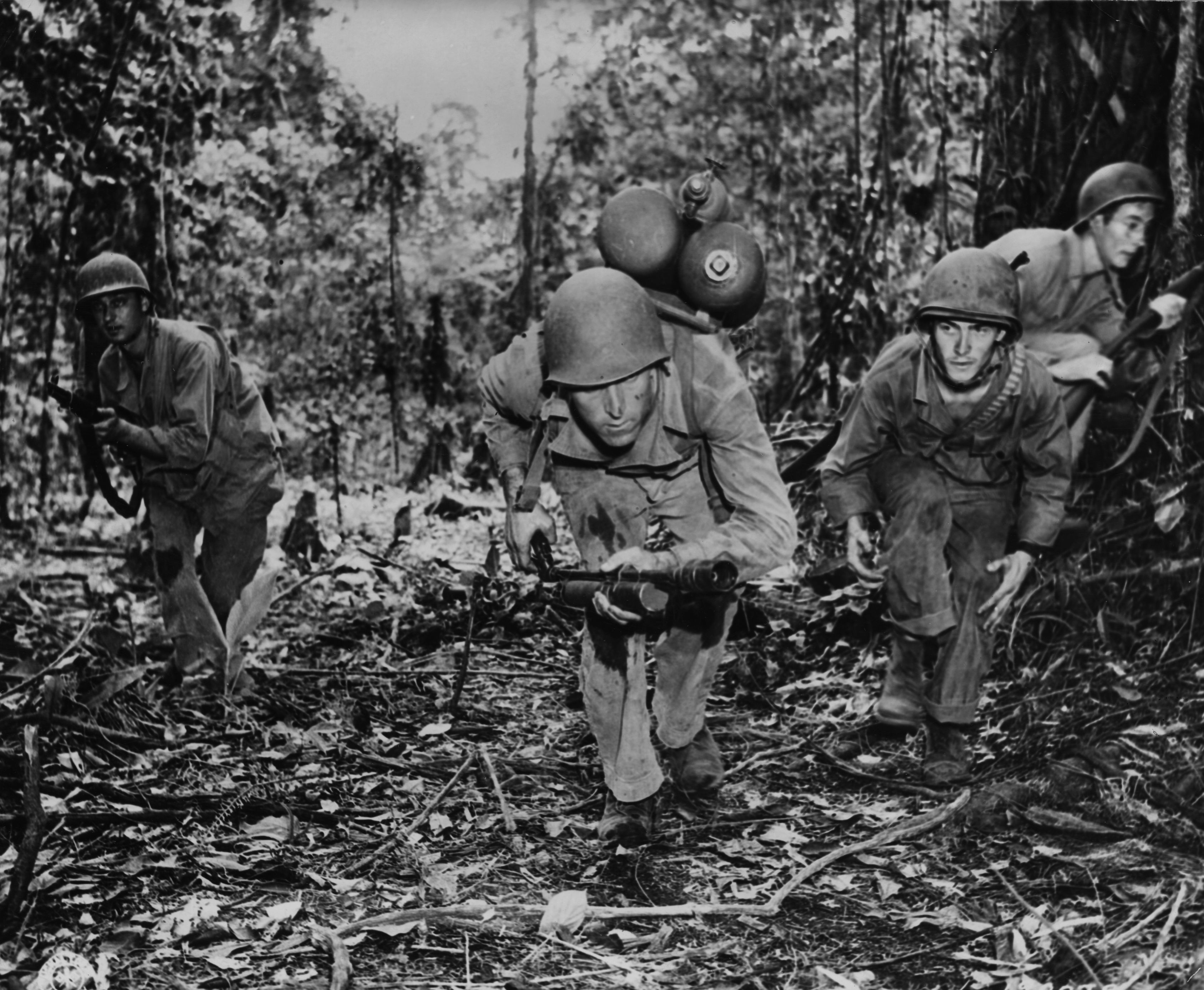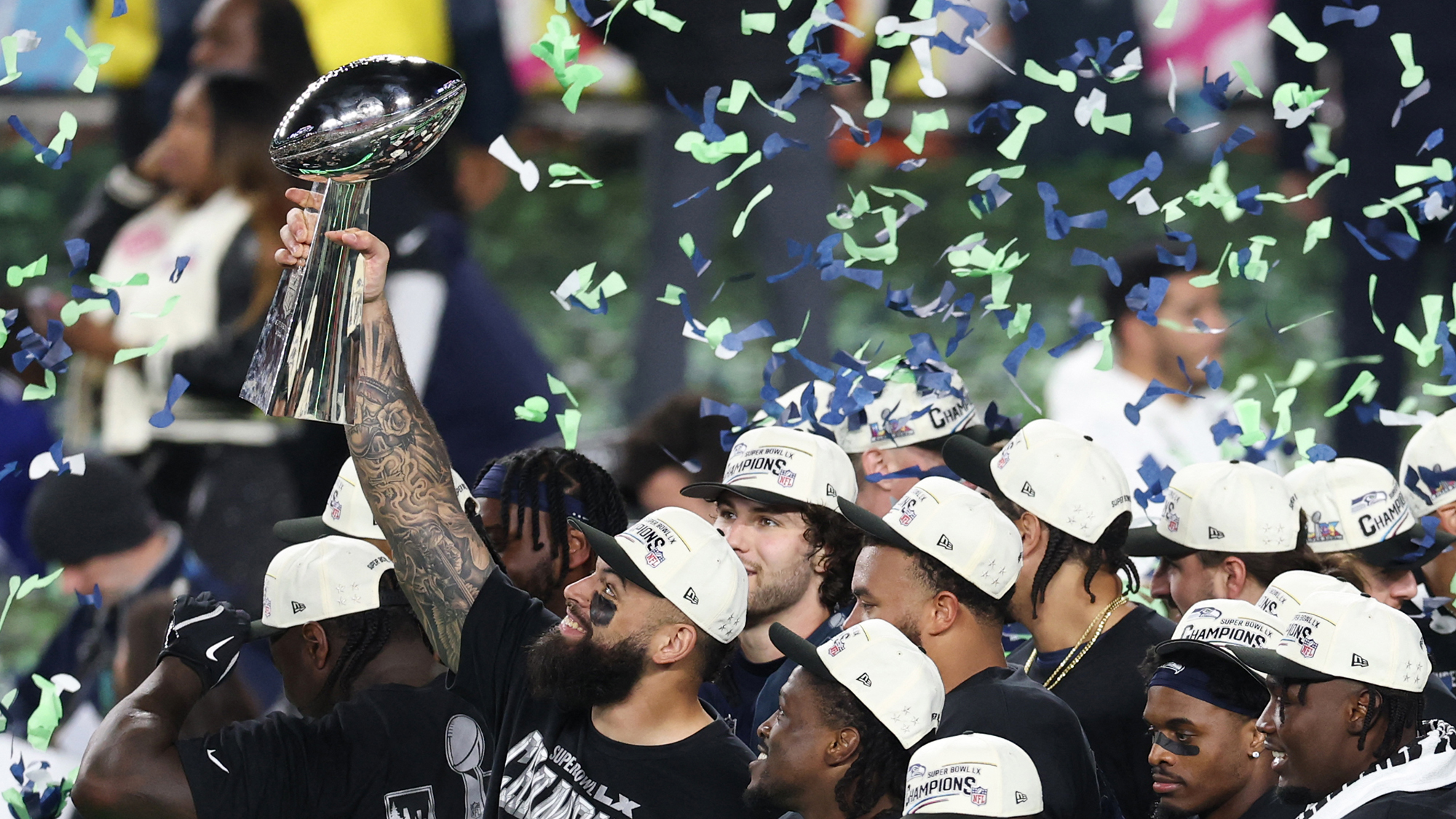Time for America to get over its WWII nostalgia
It was the nadir of human history, not a Saturday morning cartoon


A free daily email with the biggest news stories of the day – and the best features from TheWeek.com
You are now subscribed
Your newsletter sign-up was successful
America has long been fascinated with its role in the Second World War. Whether it's books, films, TV shows, or video games — the latest installment of the hugely successful Call of Duty franchise (which now boasts five WWII entries) takes place in the Western European theater — Americans have a voracious appetite for war media.
There's nothing wrong with an interest in history. But the distorted and chauvinist way the war's history has been presented in the popular imagination is a major problem. It's long since time Americans adopted a more realistic and sensible attitude towards World War II.
The greatest error of historical fact in America's popular interpretation of the war is the idea that the United States won it pretty much single-handedly. In fact, while American production and money was probably indispensable to the overall success of the Allies, actual American fighting was mostly a sideshow to the major conflict: the fight between the Soviet Union and Nazi Germany. In the Eastern European theater — which is rarely portrayed in popular American media — over 30 million people were killed, including the vast majority of Holocaust victims. During the war, the Soviets suffered perhaps nine million soldiers killed and 16 million civilian deaths, while German forces lost about 4.4 million soldiers — or 80 percent of their total losses, as compared to less than a million killed in Western Europe.
The Week
Escape your echo chamber. Get the facts behind the news, plus analysis from multiple perspectives.

Sign up for The Week's Free Newsletters
From our morning news briefing to a weekly Good News Newsletter, get the best of The Week delivered directly to your inbox.
From our morning news briefing to a weekly Good News Newsletter, get the best of The Week delivered directly to your inbox.
In total, America suffered 400,000 casualties — a horrifying number, to be sure. But the Soviets lost more than that in the Battle of Stalingrad alone.
This ties neatly into the second problem with the popular interpretation: The notion that the Second World War was some singularly noble crusade, or a simple contest between good and evil. The reason Americans want to believe we won it single-handed is obviously to claim the credit for being the good guys. In reality, while it was one of two wars in American history that surely needed to be fought (the other being the Civil War), and the Nazis were the most evil political movement that has ever existed, the truth is that nobody acquitted themselves particularly well during the war.
The fact that the Soviets did by far the lion's share of the work defeating Hitler makes a hash of American boasting, but it also severely complicates the childish good versus evil frame. The Soviets do deserve enormous credit for the victory, especially the ordinary soldiers who were mostly conscripted, but Stalin had also signed a non-aggression pact with Hitler and cynically connived with him to devour half of Poland, then waged war with bone-chilling ruthlessness. At bottom, by far the most important theater of the war featured two totalitarian dictatorships, one only somewhat less vile than the other, slugging it out in an incomprehensibly murderous war of annihilation.
But if Stalin was not much of a good guy, with his NKVD mass murders, idiotic purges of his officer corps, and flippant disregard for Soviet casualties both military and civilian, the other Allies were not exactly faultless either. British Prime Minister Winston Churchill diverted food stocks from colonial India during a massive famine in 1943, and responded to a telegram begging for help by asking why Gandhi hadn't starved yet. The American government, wary of European entanglement and under pressure from American Nazi sympathizers like Charles Lindbergh, did not join the war to help France and Britain — not even when the latter stood completely alone against Hitler. Though FDR did anticipate war, and backstopped Britain generously with the lend-lease program, America as a whole only joined up after Japan bombed Pearl Harbor. At home, FDR responded to that attack with racist collective guilt: by rounding up Japanese-Americans and placing them in concentration camps.
A free daily email with the biggest news stories of the day – and the best features from TheWeek.com
Worst of all, the Allies did almost nothing to prevent the Holocaust, despite knowing of anti-Jewish violence. On the contrary, the American government turned away a ship full of Jewish refugees, almost all of whom were later massacred, rejected a plan to rescue 20,000 Jewish children, and denied a visa to Anne Frank — all with strong popular support. The U.K. dismissed the possibility of mass evacuation of Jews during the war, in part because Foreign Secretary Anthony Eden feared that Hitler might accept the offer. It wasn't until 1944 that the American government found a place for a handful of Jewish refugees.
U.S. and U.K. war conduct, while not as bad as Stalin's, also featured war crimes as a deliberate strategy. The bombing of German and Japanese cities killed millions of civilians, and was not even that effective at undermining the enemy war effort. As Robert McNamara said of his time doing logistics for Air Force General Curtis LeMay's strategic bombing campaign during the war, "he, and I'd say I, were behaving as war criminals."
The worst symbol of the blinkered popular understanding is the National World War II Memorial in Washington, D.C. Unlike the wrenching Vietnam War memorial nearby, and the tasteful and understated Korean War memorial, this is unquestionably a celebration of the conflict. It's supposed to be a monument to American triumph, shared among all 56 U.S. states and territories, each one of which gets its own granite pillar. With its ideological content, exact symmetry, multiple wreaths and eagles, and hamfisted symbolism, it very strongly smacks of the architecture of Albert Speer.
All told, the Second World War was the nadir of human history, not an uncomplicated story of grand heroism. Perhaps if Americans could internalize that fact, we wouldn't be so easy to trick into starting a new bloody war of aggression.
Ryan Cooper is a national correspondent at TheWeek.com. His work has appeared in the Washington Monthly, The New Republic, and the Washington Post.
-
 Hong Kong jails democracy advocate Jimmy Lai
Hong Kong jails democracy advocate Jimmy LaiSpeed Read The former media tycoon was sentenced to 20 years in prison
-
 Japan’s Takaichi cements power with snap election win
Japan’s Takaichi cements power with snap election winSpeed Read President Donald Trump congratulated the conservative prime minister
-
 Seahawks trounce Patriots in Super Bowl LX
Seahawks trounce Patriots in Super Bowl LXSpeed Read The Seattle Seahawks won their second Super Bowl against the New England Patriots
-
 The billionaires’ wealth tax: a catastrophe for California?
The billionaires’ wealth tax: a catastrophe for California?Talking Point Peter Thiel and Larry Page preparing to change state residency
-
 Bari Weiss’ ‘60 Minutes’ scandal is about more than one report
Bari Weiss’ ‘60 Minutes’ scandal is about more than one reportIN THE SPOTLIGHT By blocking an approved segment on a controversial prison holding US deportees in El Salvador, the editor-in-chief of CBS News has become the main story
-
 Has Zohran Mamdani shown the Democrats how to win again?
Has Zohran Mamdani shown the Democrats how to win again?Today’s Big Question New York City mayoral election touted as victory for left-wing populists but moderate centrist wins elsewhere present more complex path for Democratic Party
-
 Millions turn out for anti-Trump ‘No Kings’ rallies
Millions turn out for anti-Trump ‘No Kings’ ralliesSpeed Read An estimated 7 million people participated, 2 million more than at the first ‘No Kings’ protest in June
-
 Ghislaine Maxwell: angling for a Trump pardon
Ghislaine Maxwell: angling for a Trump pardonTalking Point Convicted sex trafficker's testimony could shed new light on president's links to Jeffrey Epstein
-
 The last words and final moments of 40 presidents
The last words and final moments of 40 presidentsThe Explainer Some are eloquent quotes worthy of the holders of the highest office in the nation, and others... aren't
-
 The JFK files: the truth at last?
The JFK files: the truth at last?In The Spotlight More than 64,000 previously classified documents relating the 1963 assassination of John F. Kennedy have been released by the Trump administration
-
 'Seriously, not literally': how should the world take Donald Trump?
'Seriously, not literally': how should the world take Donald Trump?Today's big question White House rhetoric and reality look likely to become increasingly blurred
